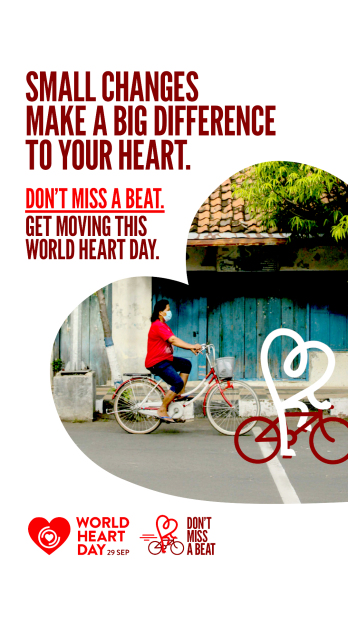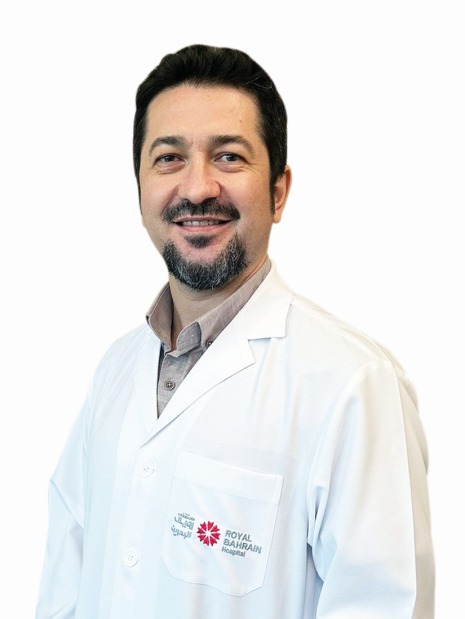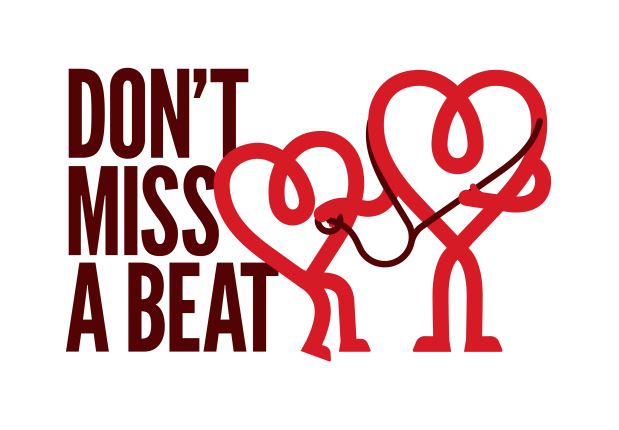Health experts are raising concerns over the growing number of young people leading unhealthy lifestyles, contributing to a worrying rise in heart disease rates in Bahrain.
The warning comes as Bahrain prepares to mark World Heart Day tomorrow – a global initiative by the World Heart Federation aimed at raising awareness about cardiovascular disease (CVD), its risk factors, and the importance of maintaining heart health at all ages.
Each year, CVD claims over 20.5 million lives. Of these deaths, 85 per cent are due to coronary heart diseases (eg heart attacks) and cerebrovascular diseases (eg strokes).

Each year, cardiovascular disease (CVD) claims more than 20.5 million lives
Doctors point to a combination of factors driving the increasing numbers, including poor diet, lack of physical activity, rising rates of smoking among youth, diabetes, hypertension and genetic predispositions.
“More people are consuming processed foods high in sugars and unhealthy fats, while physical activity levels are declining and stress is on the rise,” Royal Bahrain Hospital consultant cardiologist Dr Selcuk Kucukseymen told the GDN.
“We are also seeing an alarming trend of conditions like diabetes and hypertension being diagnosed at increasingly younger ages.
“According to the latest figures from Bahrain in 2023, cardiovascular diseases now account for 30 to 35pc of all deaths,” he said.
In 2021, there were 1,396 deaths attributed to CVD in Bahrain, with a crude mortality rate of 91 per 100,000 people, according to the Geneva-based World Heart Federation.
In addition, the age-standardised CVD mortality rate was 290 deaths per 100,000 population (2021), while the age-standardised incidence rate was 1,284 new CVD cases per 100,000 population (2021).
Cardiovascular disease is any disease involving the heart or blood vessels.

Dr Kucukseymen
Dr Kucukseymen explained that hypertension (high blood pressure) and Type 2 diabetes are among the leading causes of heart problems in the kingdom, in his practice.
“Type 2 Diabetes is arguably the greatest driver,” he said, adding that the condition dramatically accelerates atherosclerosis (the hardening of the arteries), increasing the risk of heart attacks, often at a younger age.
According to the latest statistics, around 15pc of Bahrain’s population suffer from diabetes.
“Hypertension is extremely common and frequently undiagnosed or poorly controlled. It puts strain on the heart and blood vessels,” he said.
Dr Kucukseymen also emphasised that despite the common belief that shisha is a safer alternative to smoking, it is not, and can significantly raise blood pressure and cause serious damage to the arteries.
“Shisha smoke contains the same toxic chemicals and nicotine as cigarettes,” he said, advising all adults to undergo baseline heart health screening including blood pressure, cholesterol and blood sugar levels by age 30, or by 20 if there’s a family history of heart disease.

Dr Garadah
AlSalam Specialist Hospital consultant cardiologist Dr Taysir Garadah warned about the dangers of shisha and smoking, noting that a single shisha session can be equivalent to smoking 40 cigarettes.
“We are seeing a growing number of young people taking up smoking, particularly young women who gather socially for shisha at cafés,” he said.“The rising number of shisha cafés is only adding to the problem, and now we’re seeing patients as young as 20 to 25 diagnosed with coronary heart disease – something that should not be happening at such a young age.”
He also emphasised the importance of getting quality sleep, noting that a lack of proper rest has been linked to an increased risk of heart disease.
Lack of sleep increases the risk of heart disease by raising blood pressure, promoting inflammation, disrupting blood sugar control and contributing to obesity and atherosclerosis.
Dr Garadah also encouraged people to adopt healthier eating habits and become more physically active.
“With the rise of food delivery apps like talabat, many people are opting for junk food and neglecting their health,” he said, adding that individuals should aim to walk at least three hours a week or 30 minutes a day and try to eat more vegetables, fruits and fish.

Dr Thottian
KIMSHEALTH Hospital consultant cardiologist Dr Julian Thottian told the GDN that people should work to keep their stress levels low and sleep more than six hours a night, while avoiding fizzy drinks, salt, tinned and canned foods.
“It is also crucial that as a community, we spread awareness about heart attack symptoms, signs and the importance of CPR,” he said, noting that people who have heart disease should ensure they are taking their medication properly as prescribed by their physician and to visit a cardiologist promptly in case of any symptoms.

World Heart Day logo
Signs can include chest discomfort, pressure squeezing, fullness or pain in the centre of the chest that lasts more than a few minutes, pain that spreads to the arms, back, neck, jaw or stomach, shortness of breath, cold sweats, nausea and lightheadedness.
For women, symptoms can be more subtle. They could experience shortness of breath, nausea/vomiting, and back or jaw pain, without the classic chest pressure.
Globally, cardiovascular diseases (CVDs) cause approximately 19.8 million deaths annually, accounting for about 32pc of all global deaths in 2022, according to the World Health Organisation.
julia@gdnmedia.bh

.jpg?20250928')
&uuid=(email))